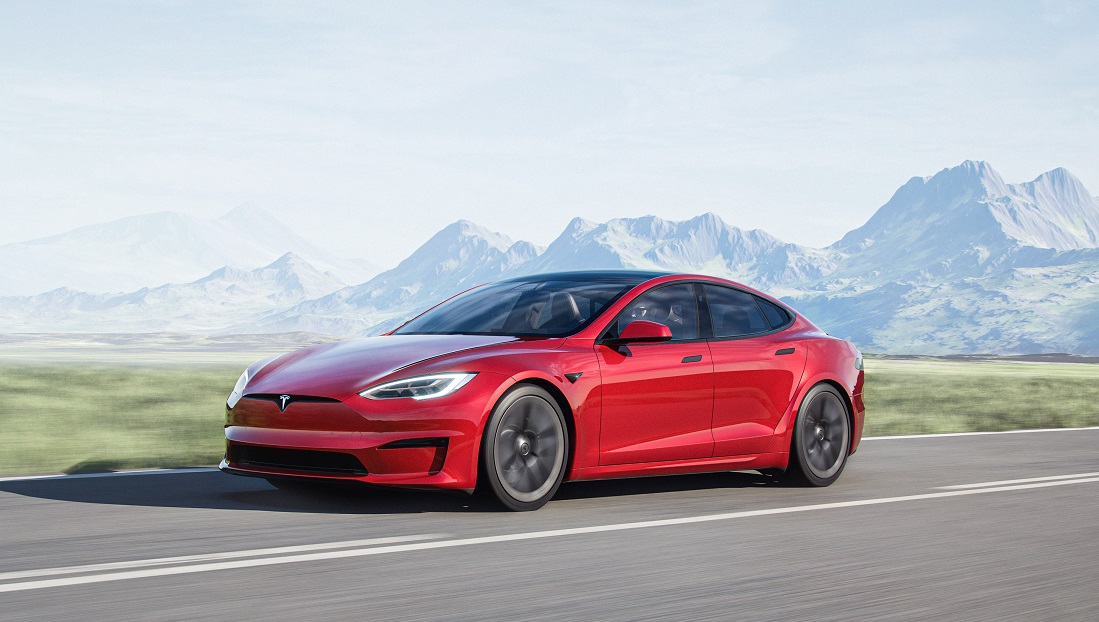High-profile electric vehicle maker Tesla was removed from the S&P 500 ESG Index in the benchmark’s annual rebalancing, as the company’s ESG score was held back by its lack of a low-carbon strategy, and its exposure to risk stemming from concerns including racial discrimination, working conditions, and safety-related governance.
Tesla had been added to the index during last year’s rebalance, having joined the S&P 500 in December 2021.
S&P Dow Jones Indices’ (S&P DJI) preeminent S&P 500 ESG Index is a broad-based, market-cap-weighted index that is designed to measure the performance of securities meeting sustainability criteria, while maintaining similar overall industry group weights as the ubiquitous S&P 500 Index. Constituents for the indices are selected using S&P DJI ESG Scores, derived from an annual Corporate Sustainability Assessment (CSA). The index also applies screens and exclusions for involvement in certain business activities, such as controversial weapons or thermal coal extraction, or for companies not aligned with the principles of the UN’s Global Compact (UNGC).
The index is rebalanced annually, effective after the close of the last business day of April, and this year’s rebalancing saw the removal of several well known names from the index, including Home Depot, Accenture, Chevron, Delta Air Lines, and Tesla.
In a blog post discussing some of the changes, S&P DJI’s Maggie Dorn, Senior Director and Head of ESG Indices, North America, described how Tesla’s ESG score fell to the bottom 25% of its sector group, resulting in its removal from the ESG index, despite being “a company whose self-declared mission is to “accelerate the world’s transition to sustainable energy.””
The most significant factor, according to Dorn, was not specific to Tesla, but rather to the improved sustainability of its peer group, GICS industry group Automobiles & Components, which saw an overall increase in average ESG scores, while Tesla’s score remained fairly stable.
Dorn outlined a few of the factors that led to a small decline in Tesla’s ESG score, including the company’s lack of a low carbon strategy, encompassing its plan to reduce the carbon intensity of its car portfolio and assess its current portfolio to regulatory risk, as well as Tesla’s codes of business conduct, which covers companies’ practices and transparency on issues including corruption, bribery and anti-competitive practices.
Dorn also highlighted other issues impacting the assessment:
“In addition, a Media and Stakeholder Analysis, a process that seeks to identify a company’s current and potential future exposure to risks stemming from its involvement in a controversial incident, identified two separate events centered around claims of racial discrimination and poor working conditions at Tesla’s Fremont factory, as well as its handling of the NHTSA investigation after multiple deaths and injuries were linked to its autopilot vehicles.”
Following news of the removal from the ESG index, Tesla CEO and co-founder Elon Musk released several tweets criticizing the move, describing ESG as a “scam,” and questioning S&P DJI’s integrity:
Dorn pointed out that while “while Tesla and others may not have been included in the index this year, the beauty of the annual rebalance is that they will once again have an opportunity to be reviewed for inclusion in years to come.”

